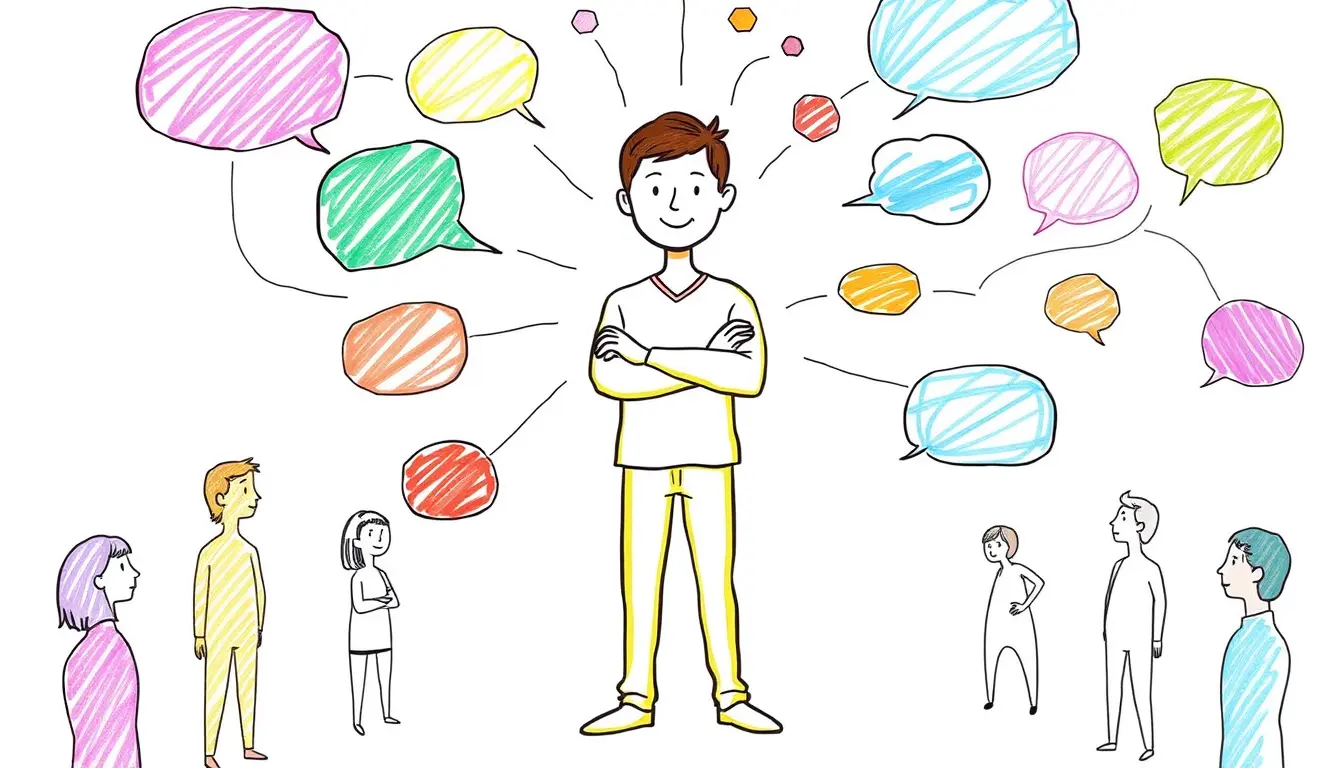Understanding Assertiveness and its Importance in Communication
Assertiveness in communication is a key skill that allows individuals to express their thoughts, feelings, and needs in a clear and respectful manner. It involves standing up for oneself while also considering the rights and perspectives of others. Being assertive helps in fostering healthy relationships, resolving conflicts effectively, and setting boundaries to protect one’s well-being.
Understanding the importance of assertiveness in communication is crucial for personal and professional growth. It enables individuals to establish open and honest communication, build self-confidence, and gain respect from others. By practicing assertiveness, individuals can ensure that their voice is heard, their opinions are valued, and their needs are met in various interactions and relationships.
Exploring Mindful Approaches to Enhance Assertiveness
Mindful approaches can play a significant role in enhancing assertiveness. By being present in the moment and fully attentive to the conversation, individuals can better understand their own needs and effectively communicate them to others. Mindfulness allows individuals to tap into their inner thoughts and emotions, aiding them in expressing themselves confidently and assertively.
Practicing mindfulness also helps individuals stay calm and composed during challenging conversations. By grounding themselves in the present moment and focusing on their breath, individuals can approach communication with a clear and focused mind. This enables them to respond thoughtfully rather than react impulsively, leading to more assertive and constructive interactions.
Identifying Barriers to Confident Communication
Confident communication can face several barriers that hinder effective interaction. One common obstacle is fear of rejection or criticism, leading individuals to hold back their thoughts and ideas. This fear can stem from past negative experiences or a lack of self-confidence, making it challenging to express oneself assertively.
Another barrier to confident communication is poor self-awareness. When individuals are unaware of their communication style, strengths, and weaknesses, they may struggle to adapt their approach to different situations. This lack of self-awareness can result in ineffective communication and difficulty in asserting one’s needs and boundaries.
• Fear of rejection or criticism can hinder confident communication
• Past negative experiences and lack of self-confidence contribute to this fear
• Poor self-awareness is another barrier to confident communication
• Lack of knowledge about one’s own communication style, strengths, and weaknesses can lead to ineffective interactions
Developing Self-Awareness for Effective Assertiveness
Self-awareness is a fundamental aspect of developing effective assertiveness in communication. It involves being in tune with your thoughts, emotions, and actions, and understanding how they influence your interactions with others. By cultivating self-awareness, you can identify your strengths, weaknesses, triggers, and patterns of behavior that may impact your ability to assert yourself confidently.
Self-awareness also enables you to recognize and manage your emotions in a more constructive way during conversations or conflicts. By being mindful of your emotional responses, you can make conscious choices about how you express yourself assertively without being overly aggressive or passive. Taking the time to reflect on your reactions and considering alternative perspectives can help you respond more effectively in various communication scenarios.
Practicing Active Listening in Communication
Active listening is a fundamental aspect of effective communication that involves fully concentrating, understanding, responding, and remembering what is being said. It requires giving the speaker your full attention without interrupting or formulating your response while they speak. By focusing on the speaker’s words, tone, and body language, you can gain a deeper understanding of their message.
One key aspect of active listening is providing feedback to the speaker to show that you are engaged and comprehending their message. This feedback can include nodding, paraphrasing what they have said, or asking clarifying questions to ensure you have interpreted their words correctly. By demonstrating active listening, you not only enhance your understanding of the speaker’s perspective but also show respect and consideration for their thoughts and feelings.
Utilizing Nonverbal Communication to Enhance Assertiveness
Nonverbal communication plays a significant role in enhancing assertiveness in interpersonal interactions. Our body language, facial expressions, and gestures can convey confidence and authority without uttering a single word. Maintaining eye contact, adopting an open and upright posture, and using expressive hand movements can all signal to others that we are sure of ourselves and our message.
Furthermore, our tone of voice and overall demeanor also contribute to how assertive we appear in communication. Speaking clearly and confidently, with a steady and measured pace, can reinforce the message we are trying to convey. Additionally, mirroring the body language of the person we are communicating with can establish rapport and convey understanding, further strengthening our assertiveness in the interaction.
Learning to Set Boundaries in Communication
Setting boundaries in communication is a crucial aspect of asserting oneself effectively. Establishing boundaries helps to define what is acceptable or unacceptable in interactions, thus ensuring that one’s needs and limits are respected. When setting boundaries, it is important to clearly communicate expectations, express feelings assertively, and be firm in upholding those boundaries.
Boundaries can be physical, emotional, or psychological, and they serve as a means of self-protection and self-care in relationships. By setting boundaries, individuals create a sense of security and maintain a healthy level of self-respect. It is essential to remember that setting boundaries is not about being controlling or rigid, but rather about creating mutual understanding and respect in communication dynamics.
Handling Conflict Assertively and Mindfully
When faced with conflict, it is essential to approach the situation with a blend of assertiveness and mindfulness. Assertiveness allows individuals to communicate their needs and boundaries clearly, while mindfulness helps in staying present and calm during the conversation. By combining these two approaches, one can address conflict in a respectful and constructive manner.
One key aspect of handling conflict assertively and mindfully is active listening. This involves giving the speaker your full attention, refraining from interruptions, and reflecting back what you have heard to ensure understanding. Active listening not only shows respect for the other person’s perspective but also helps in finding common ground and resolving conflicts effectively.
Building Empathy for Effective Communication
Empathy is a crucial component of effective communication, as it involves understanding and connecting with the emotions and perspectives of others. By being empathetic, we can create a supportive and respectful environment where individuals feel heard and valued. It allows us to truly listen to others without judgment and respond in a way that acknowledges their feelings and experiences.
Developing empathy requires active listening and putting yourself in the shoes of the other person. It involves setting aside your own biases and preconceptions to truly understand the emotions and motivations behind someone’s words or actions. Empathy not only strengthens relationships but also helps in resolving conflicts and fostering a sense of unity and understanding among individuals.
Practical Tips for Improving Assertiveness in Daily Interactions
To enhance assertiveness in daily interactions, start by practicing clear and direct communication. Be concise and specific in expressing your thoughts, needs, and boundaries without hesitating or apologizing unnecessarily. This clarity will help others understand your intentions and expectations more easily, leading to more effective communication exchanges.
Another practical tip for improving assertiveness is to practice positive self-talk and affirmations. Encourage yourself with statements that boost your confidence and self-worth, such as “I deserve to be heard and respected” or “My opinions are valid and valuable.” By cultivating a positive inner dialogue, you can strengthen your assertiveness and project a more self-assured demeanor in your interactions with others.
What is assertiveness and why is it important in communication?
Assertiveness is the ability to express your thoughts, feelings, and needs in a clear and confident manner while respecting the rights of others. It is important in communication because it helps you establish boundaries, build self-confidence, and effectively navigate various social interactions.
How can mindfulness help enhance assertiveness?
Mindfulness can help enhance assertiveness by allowing you to stay focused on the present moment, regulate your emotions, and respond thoughtfully rather than react impulsively in communication situations.
What are some common barriers to confident communication?
Common barriers to confident communication include fear of confrontation, low self-esteem, lack of assertiveness skills, passive-aggressive behavior, and poor communication habits.
How can I develop self-awareness for effective assertiveness?
You can develop self-awareness for effective assertiveness by reflecting on your thoughts, emotions, and behaviors, identifying patterns in your communication style, and actively seeking feedback from others.
What is active listening and how can it improve communication?
Active listening is a communication technique where you fully concentrate, understand, respond, and remember what is being said. It can improve communication by building trust, fostering empathy, and enhancing mutual understanding in interactions.
How can nonverbal communication enhance assertiveness?
Nonverbal communication, such as maintaining eye contact, using assertive body language, and speaking with a confident tone, can enhance assertiveness by reinforcing your verbal messages and conveying your assertive stance effectively.
Why is setting boundaries important in communication?
Setting boundaries is important in communication because it helps you establish your limits, respect your needs, and communicate your expectations clearly to others, which can prevent misunderstandings and conflicts.
How can I handle conflict assertively and mindfully?
You can handle conflict assertively and mindfully by staying calm, listening actively to the other party, expressing your thoughts and feelings assertively, seeking common ground, and focusing on resolution rather than winning the argument.
How can empathy help improve communication effectiveness?
Empathy can help improve communication effectiveness by helping you understand others’ perspectives, build rapport, show compassion, and respond sensitively to their emotions, which can enhance mutual respect and trust in interactions.







Leave a Reply